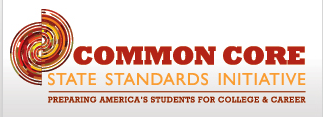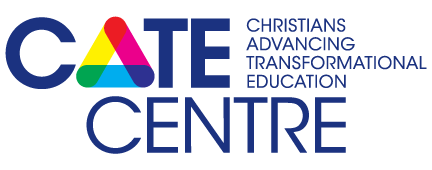 By Dan Beerens
By Dan Beerens
Over the past three years I have frequently been asked what I think of the Common Core State Standards (CCSS) in education. I suppose it goes with the territory: as part of my professional work, I have had one-on-one conversations with over 130 Christian schools who were trying to determine whether or not to align to CCSS. The vast majority chose to align; not because of my urging, but because of the desire of these schools to continue to make helpful changes for student learning. When I agreed to write this article, I decided that what might be most helpful is to offer perspective rather than position or politics. I will offer a broader frame of reference in this article and am not going to suggest that we get tied up in knots about CCSS in Christian schools. Just so you know where I am coming from at the outset, I believe that CCSS overall are a helpful tool and a worthwhile addition to strengthen our schools. They are a piece of the puzzle, but not the ending point of our goals in Christian education.
The Bigger Picture
What do I mean that they are a piece of the puzzle, but not the ending point? In Christian education we acknowledge the importance of knowledge, but in order to meet our missions we must challenge students to go beyond knowledge – to understand the wisdom of God as revealed by Jesus Christ. The espoused aim of public education is for two primary purposes: economic gain and citizenship. Christian education seeks to go beyond benefit to man or society, to advancement of the kingdom of Jesus Christ. Christian education looks at mankind holistically, including his reason for existence, his function as a spiritual being/imagebearer of God, and his need to worship. The stated goal of the use of CCSS is to prepare students with the necessary skills to be successful in college and careers. Nothing wrong with that, but just incomplete! The Christian student should understand that it is not primarily about success but service, not about winning but worship, and not about having it all, but living in harmony with God, neighbor, creation and self.
Christian education, if done faithfully and well, starts and ends in different places. We should start with a different view of the child, of the world and who is our neighbor, of how we know anything; not simply man’s investigation, but God’s revelation. We should end in a different place with students – replacing personal success and economic gain with a deep understanding of what if means to be gifted and called by God to serve and worship him in this world. The journey should also look a bit different for the student in terms of what we assess and how we assess student progress and helping them with perspective and priorities with time, talents, and treasures. Excellence is to be understood as a by-product of our desire to love God with our minds, hearts, and bodies — a pouring out our self, not as an end in itself. Excellence is what results from devotion, determination, curiosity, creativity, persistence and personal application in the learning process. CCSS can help in this learning process, but these standards are only a part of the larger journey and outcomes we seek for students in Christian education.
Impressions of CCSS
So, what about the CCSS standards and benchmarks? I am encouraged by their emphasis on thinking, reasoning, writing, informational text, and asking students to support a stand. Any efforts to move us out of our over-emphasis on the lower portion of Bloom’s taxonomy (60% of classroom instruction according to a recent research study) into the upper half—evaluation, analysis, synthesis, and creation—should be most welcome! These standards give our students some common expectations across a global and mobile society. They are not the end all; the CCSS received an A- and a B+ in the Fordham Institute rankings1 (whereas certain state standards have received an A), but they are a marked improvement and convey a higher degree of rigor than many states who received a B grade or below. We can expect that their perceived weaknesses will be improved over time and we also know that states have the liberty to add up to 15% of their own content to the CCSS set. It is important to keep in mind that they are descriptions of desired student results, not the means to attain those results. CCSS are not a curriculum, but are clear goals and expectations. Additionally, these standards have stimulated a national educational focus and discussion like I have not seen in my lifetime and that is a healthy thing! As I consider their merit, these questions run through my mind: 1) Do they have the potential to produce “better fruit” if used appropriately by schools 2) Can our students benefit from and achieve these standards? 3) Can they help Christian schools improve our teaching and learning for our students? I believe that the answer is affirmative to each question.
Christian educators – copycats or creative forces?
Sometimes in Christian education we pay too much attention to what is happening with our neighbors and sometimes not enough! In this case I think that we should not waste too much time or energy on critiquing and politicking about CCSS. We should adopt thoughtfully and use well what is worthy from CCSS, but recognize their incompleteness. What we should be spending time on is a discussion of the outcomes that go beyond CCSS — the ones that help us to develop our missions and our distinctiveness. We should be spending time on “whole child” and “flourishing” outcomes and how we might understand student progress in these areas. I have proposed that the outcomes we should be most concerned about are the ones that point to how we reflect God’s image and how we can live in harmony with God, neighbor, creation, and self (see sidebar list.) If you asked most parents and educators, I believe that these are the true outcomes we desire for students at the end of their K-12 educational journey and the real reasons Christian schools exist in the first place. (You can read more about what is intended by each of these outcomes on the Nurturing Faith blog.)2 These outcomes will demand that we assess different things with our students and provide different experiences along the journey—a truly uncommon core!
References:
1Thomas B. Fordham Institute: http://standards.educationgadfly.net/
2Nurturing Faith blog: http://nurturingfaith.wordpress.com/
Dan Beerens is an educational consultant, author, international speaker, and educational leader. Before starting DB Consulting in May 2010, he served as Vice President of Learning Services and Director of Instructional Improvement at Christian Schools International from 2006 to 2010, and as a building principal and then Director of Curriculum and Instruction with Holland Christian Schools from 1993 to 2006. He has made multiple presentations on teacher evaluation and professional growth, curriculum design, school improvement, technology integration, faith integrated learning, and student faith development at regional, national and international conferences. He is the author of “Evaluating Teachers for professional Growth: Creating a Culture of Motivation and Learning” published by Corwin Press in January 2000. He currently writes the Nurturing Faith blog for Christian Schools International.
